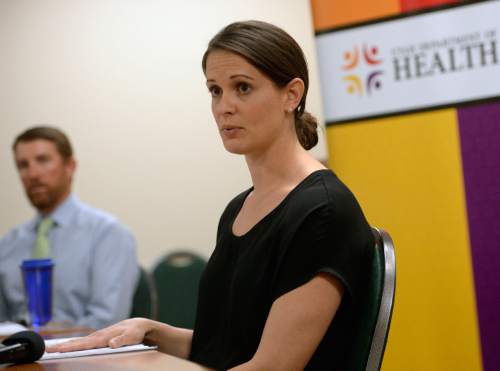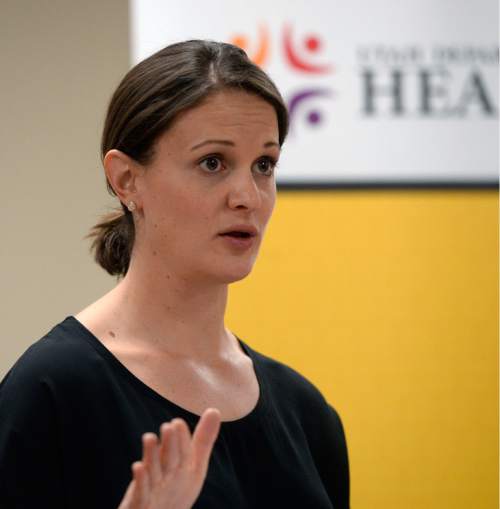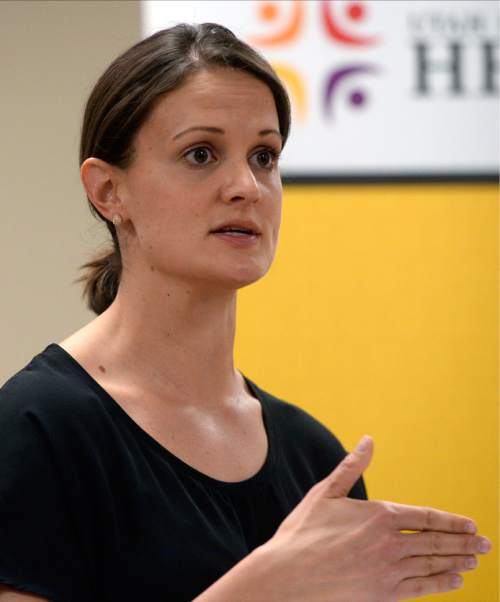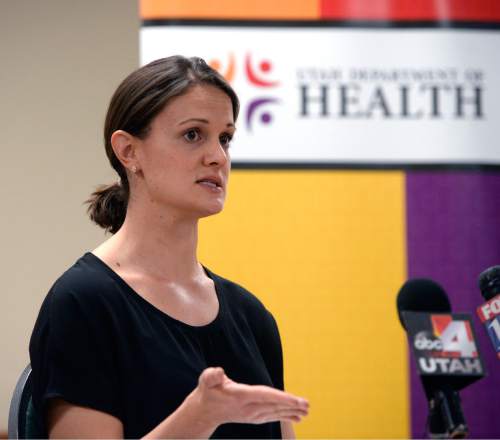This is an archived article that was published on sltrib.com in 2016, and information in the article may be outdated. It is provided only for personal research purposes and may not be reprinted.
At least 16 people have been connected to a hepatitis C outbreak associated with a nurse employed at two northern Utah hospitals, the Utah Department of Health said Monday.
Health officials began investigating last fall after finding a link between a McKay-Dee Hospital worker, who was infected with the disease, and a patient she had been in contact with who also tested positive for the same rare hepatitis C genotype 2b strain.
Fourteen of the 16 cases were patients from McKay-Dee Hospital in Ogden, while one case was from Davis Hospital and Medical Center in Layton, according to the news release. The infected nurse, Elet Neilson, also was included in the numbers released Monday.
The nurse, who was fired from the Ogden hospital in November 2014 after working there for about 18 months, had previously been employed at the Davis County hospital from 2012 to 2014. She has admitted to taking drugs from her employer while working at both hospitals, according to Utah Division of Occupational and Professional Licensing records.
"The way we identify patients that are associated with this investigation is purely by genotype," said Angela Dunn, a Centers for Disease Control and Prevention epidemiologist stationed at the Utah Department of Health (UDOH). "Hepatitis C 2b is a pretty rare genotype. Only about eight to 10 percent of all those with hepatitis C infections in Utah have that genotype. So anybody who had been potentially exposed and ended up being diagnosed with hepatitis C 2b was considered part of this investigation. ... Unfortunately, we don't have any way of 100 percent knowing how the virus was transmitted and the directionality of the virus."
The first patient linked to the hospital outbreak was diagnosed in November 2014, according to Dunn. That case was re-examined in June 2015 by officials to see whether there was a "health care-associated" infection, Dunn said, because the patient had no other risk factors, such as needle use, to explain how he became infected by the disease. The disease is spread only through blood-to-blood contact, according to Dunn.
By the time UDOH began its investigation in November 2015, three other McKay-Dee Hospital patients had already been diagnosed with the disease. Through free testing offered at the two hospitals, 10 more infected McKay-Dee Hospital patients were discovered and one infected patient was found at Davis Hospital.
UDOH officials said the free testing identified another 37 cases of hepatitis C infections with other genotypes, but those cases were not considered to be associated with the investigation. Seven other cases are pending genotype results, according to the Monday news release.
Fifty-one percent of the more than 7,200 patients notified of the potential exposure have been tested as of Monday, according to UDOH. Both of the hospitals will continue to offer the free testing for those who received a letter warning about the exposure.
Chris Dallin, spokesman for McKay-Dee, said hospital officials encourage those remaining patients to come to the hospital and be tested.
"That's an important part of this," Dallin said. "We will continue to offer the free tests for the foreseeable future."
Dallin said in February that McKay-Dee has offered to pay for treatment of patients "identified as associated with the case," but he added that the specific details of that treatment varies case by case. He said Monday that the hospital will continue working with the CDC and DOPL to ensure all necessary procedures and policies are in place to protect future patients.
"The optimistic part is that our procedures worked," he said. "We discovered someone who was diverting [drugs], we took action and fired them, and reported them to law enforcement. It worked, [but] unfortunately we are in this circumstance now."
Neilson, 49, was charged in January 2015 with third-degree-felony drug possession in Ogden's 2nd District Court after McKay-Dee Hospital reported a theft of drugs. She pleaded guilty to a reduced class A misdemeanor in May 2015 and was sentenced to two years' probation, according to court records.
Neilson surrendered her nursing license in November, a month after health officials began offering free testing to the thousands of patients who came into contact with her at the two hospitals and were given certain medications.
According to DOPL records, the woman gave up her license because a urine analysis tested positive for alcohol earlier in the year and she had several "diluted samples" in the months afterward. Alcohol use was prohibited under the terms of her probation.
Ogden police concluded in a report that it did not appear that Neilson intentionally tried to pass on the disease to other patients, and prosecutors later declined to file charges against her in connection to the hepatitis C outbreak.
At least one Utah law firm is planning to sue the hospitals and Neilson for the disease outbreak. Attorneys with the firm Feller and Wendt said in February that they have 160 clients — seven of them who have tested positive for hepatitis C — who want to pursue a class action lawsuit.









